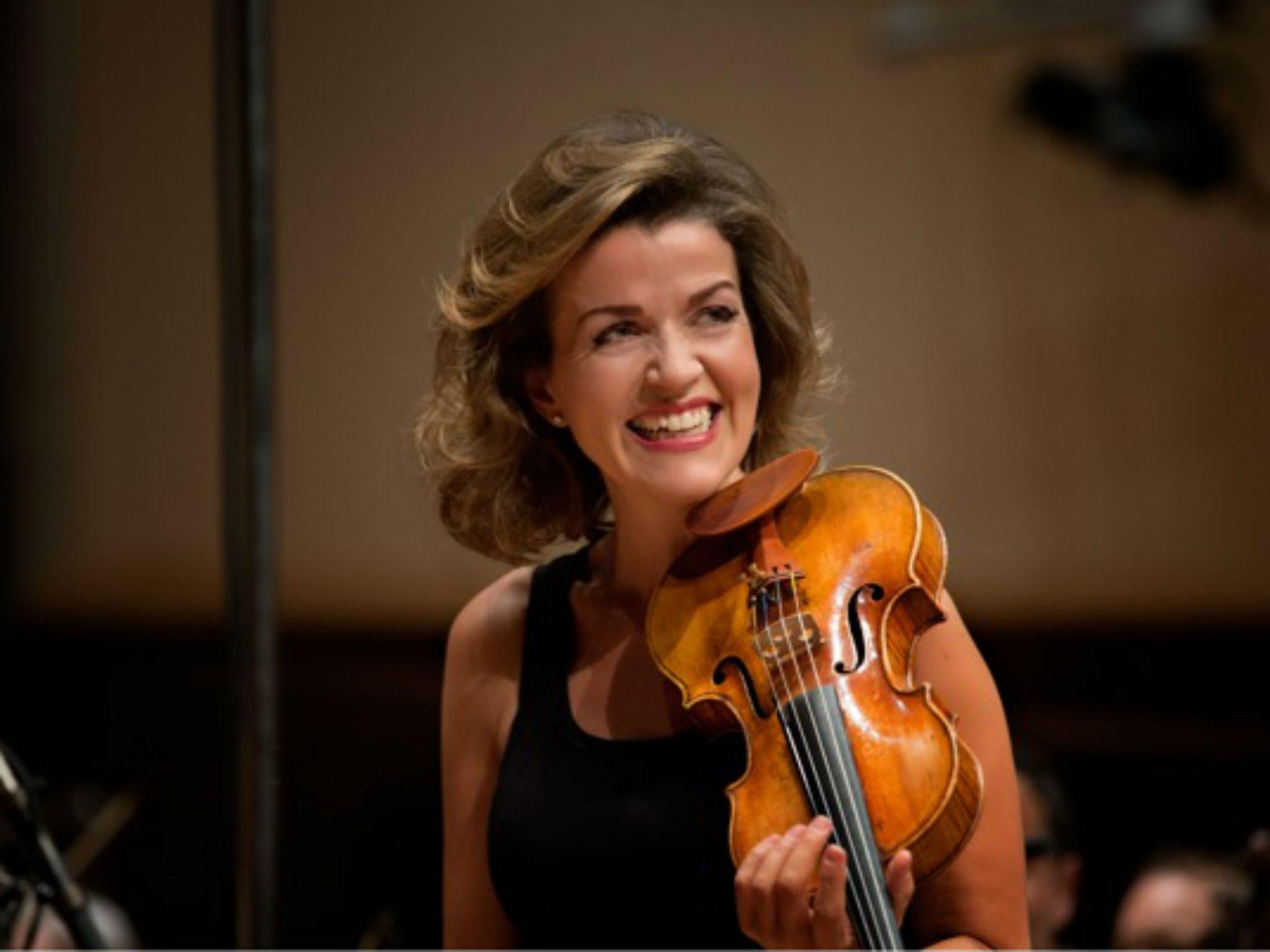Anne-Sophie Mutter, Barbican, London, review: She has peerless technique and pin-up good looks
The famous German violinist performs an evening of Mozart, Respighi and Saint-Saëns with her regular pianist Lambert Orkis and continues to champion contemporary music

With her peerless technique and pin-up good looks, violinist Anne-Sophie Mutter has been gracing the world’s most prestigious concert platforms for four decades now, but then she did begin with Karajan at 13. Kicking off a European tour with her long-term accompanist Lambert Orkis (who joined her at Rostropovich’s instigation in 1988), both qualities are as powerfully evident as ever.
Her habitual support of modern composers was shown by her inclusion of Clockwork by Sebastian Currier, who has dedicated other works to her, followed by an impeccably poised account of Mozart’s late A major sonata K526 with its presto dash at the end. Respighi’s Violin sonata in B minor gave her a chance to engage with a later, more idiosyncratic musical vocabulary, rich in Brahmsian overtones, before diving into the show-stopping Spanish fiesta of Saint-Saëns’s Introduction and Rondo Capriccioso, played with overwhelming sweetness rather than the boastful flourish it customarily invokes.
It was only with the three encores that the uncompromising excellence was allowed to fully unbend into more shameless appeals to the emotions with Tchaikovsky’s Melodie; one of Heifetz’s favoured encores Jamaican Rumba, and John Williams’s Theme from Schindler's List. Looking around at the surprisingly youthful audience, rapt as Mutter in her yellow close-fitting strapless evening gown propelled her high notes soaring into the stratosphere, one can only conclude she’s obviously cracked something rather important.
Join our commenting forum
Join thought-provoking conversations, follow other Independent readers and see their replies
Comments